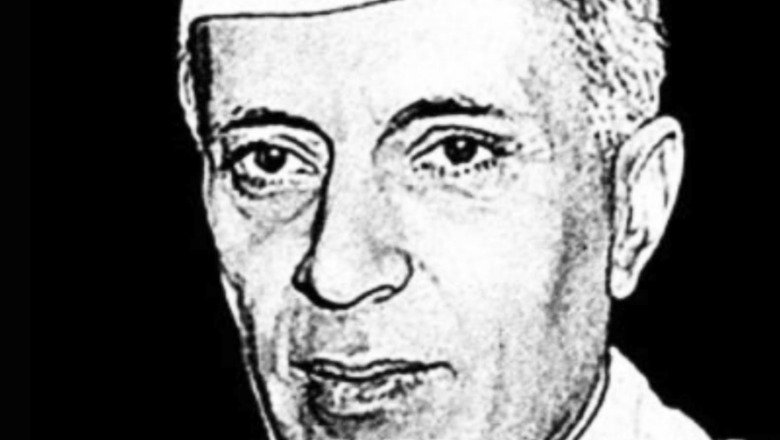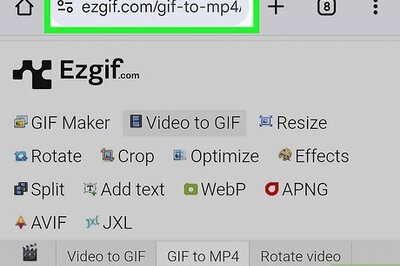
views
Jawaharlal Nehru, the first prime minister of India, has been held responsible for Partition and the creation of Pakistan, bringing amendments to the Constitution and blocking the formulation of a Uniform Civil Code in a book titled Bharatiya Samvidhan: Ankahi Kahani.
The book, set to be unveiled by Prime Minister Narendra Modi on Saturday evening, has been authored by veteran journalist Ram Bahadur Rai.
In the book, Rai has claimed that Nehru wanted the Constitution of India to be subservient and reflective of Congress policies.
“In his letter to the then West Bengal Chief Minister Vidhan Chandra Roy, Nehru confessed many things including if the Constitution goes against Congress policies then it should be amended accordingly,” reads the chapter on ‘Rajdroh Ki Wapasi’.
The first line of the chapter quotes Nehru’s statement to the provisional Lok Sabha: “Though we had created a great Constitution for India, it has been hijacked by lawyers.”
According to the author, this statement by Nehru was seen as an attack on the judiciary, which was implementing the Constitution in its judgments.
“However, Nehru wanted to teach a lesson to the judges and moved many amendments to the Constitution. On 12 May, 1951, Nehru moved the first amendment to the Constitution which restricted the freedom of expression of people and curbed the freedom of press,” he points out.
Uniform Civil Code
The book also claims that Uniform Civil Code was blocked by Nehru when the proposal first came up for discussion in the Constituent Assembly.
“Freedom fighter and Mumbai Mayor Meenu Masani had first proposed the formulation of UCC in 1947 before the assembly. However, Nehru shot it down,” the book states. Meenu Masani, a Parsi, supported the UCC and said, “I am speaking as an Indian”.
1937: Turning Point in Indian History
The book highlights the political developments of 1937 and claims that the seeds of Partition were laid that year. Rai states that elections took place in 1937 and the Congress did not form an alliance with the Muslim League. Had the Congress entered a coalition with the Muslim League, history would have been different, it points out.
The League wanted to form an alliance with the Congress in Uttar Pradesh and Bombay. However, the Congress wanted to subsume Muslim League legislators, insulting the League and leading to a rejection by Mohammad Ali Jinnah.
Quoting socialist leader Madhu Limye, the book says Nehru was responsible for the episode and the Partition, terming it a “historical mistake”. The book quotes Limye as saying that Nehru’s Marxist friends were responsible for this step.
The author goes on to state that an alliance government was favoured by Netaji Subhash Chandra Bose unlike the then leadership of the Congress. It is due to Bose that an alliance government was formed in Assam.
“This brings out the fact that if there was a change in the leadership of Congress, our history would have been completely different,” Rai says, adding that it would have prevented Partition and India would have remained Akhand (whole).
Read all the Latest News , Breaking News , watch Top Videos and Live TV here.

















Comments
0 comment